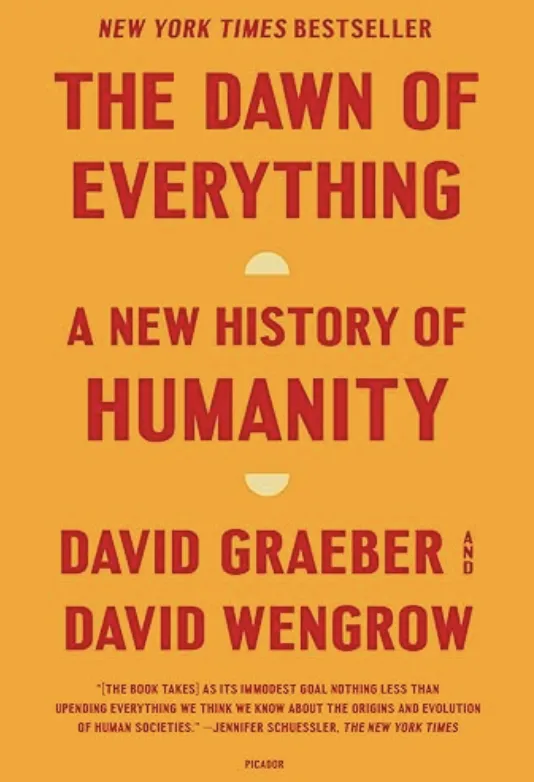Dawn Of Everything
This strange, fascinating, and extraordinary book argues that the conventional story of the dawn of agriculture is wrong. People didn’t leap into agriculture, cities, and states: they appear to have tried it out, decided that they didn’t like it, and found ways to go back to “hobby farming” with a more egalitarian society.
This pattern was both widespread and persistent: the Eastern Woodlands societies that the Europeans encountered, Graeber and Wengrow argue, had been shaped out of revolutionary resistance to the agricultural despotism of Cahokia. Against Cahokia, the American — that is to say, people born in North America — emphasized three core freedoms: the freedom not to take orders, the freedom to move away if things were going sour, and the freedom to invent a new social order if you could convince some other people to adopt it. What’s more, they speculate that a Wendat/Huron diplomat, on a mission to the court of Louis XIV, may have been the origin of The Enlightenment.
